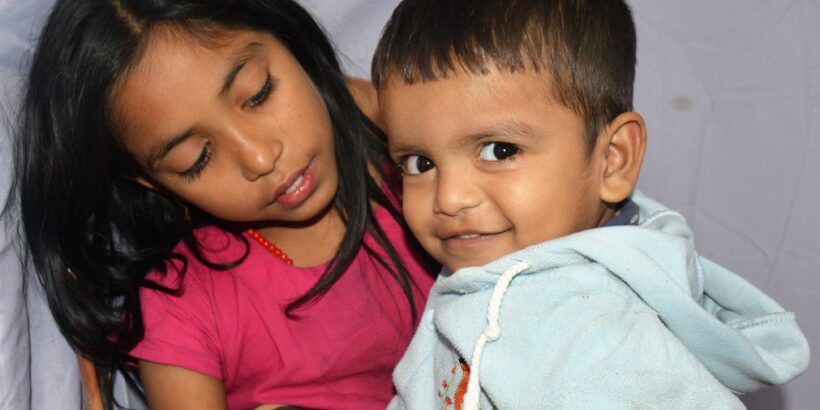Typhoid conjugate vaccines (TCVs) are powerful tools to prevent typhoid. The World Health Organization (WHO) recommends administering a single dose of TCV in countries where typhoid is endemic and/or drug-resistant typhoid rates are high. Bangladesh has one of the highest burdens of typhoid in the world. As part of a comprehensive typhoid control strategy, the Government of Bangladesh will introduce TCV into its routine childhood immunization program. TCVs provide safe and effective protection against typhoid for children as young as 6 months of age. Understanding how long protection is sustained in different age groups provides additional information about this preventative tool.
Vaccine efficacy after five years
To assess TCV efficacy five years post-vaccination, we followed participants from the original cluster randomized efficacy study. During the original study period, starting in 2018, participants received either a single dose of TCV or the Japanese encephalitis (JE) vaccine between 2018-2019. In 2021, children who received JE vaccine through the study were offered TCV following the strong efficacy results showing TCV to be 85% effective in Bangladesh.
We compared incidence of blood-culture confirmed typhoid in children who initially received TCV in 2018-2019 with those who received the JE vaccine in 2018-2019 followed by TCV in 2021. This allowed us to compare the relative vaccine protection at 3 to 5 years post-vaccination between 2021-2023. We observed more blood culture-confirmed typhoid in the children who received TCV earlier than those who were vaccinated later in 2021. This suggests a decline in vaccine protection 3 to 5 years post-vaccination after a single dose of TCV. We found that children vaccinated at a younger age experienced faster waning in vaccine protection, which is consistent with the difference in antibody decline across different age groups. Although there was a decline in vaccine protection, the vaccine effectiveness for children vaccinated 2 years or older was still above 59% at 3-5 years post-vaccination.
Data on longer-term TCV protection
The current WHO recommendation is for a single dose of TCV. The WHO SAGE working group will review the existing data to inform future policy updates. Our study, along with data from a study in Malawi published earlier in 2024, provides crucial information for WHO policymaking on longer-term TCV protection for the prevention of typhoid. The study in Malawi found that TCV efficacy remained high after 4 years. This variation may be due to differences in levels of natural exposure to the typhoid pathogen or differences in the force of infection—the rate at which people get typhoid—in different countries. The incidence of typhoid in Bangladesh is almost three times higher than in Malawi. This may mean that children in Bangladesh need more antibodies to protect against typhoid compared to those in Malawi.
Moving forward
The results from this study suggest that TCV protection decreases three to five years post-vaccination, especially in children vaccinated at younger ages. However, antibody levels remain higher compared to those who have not been vaccinated. Even with a potential decrease in efficacy over time, TCV still provides significant protection compared to no vaccination, which is crucial in settings with high transmission rates and/or high rates of drug resistance. As more children continue to be vaccinated, researchers continue to learn more about the long-term protection of TCV.
We have myriad evidence to support TCV introduction in typhoid-endemic countries and countries with a high burden of drug-resistant typhoid. TCV protects children against typhoid, helps reduce typhoid transmission, and can limit further evolution of drug-resistant strains. As countries move forward to introduce TCV in routine immunization programs, additional data provide more information about TCV impact that can guide policymakers in their typhoid prevention and control strategies.
Photo: Two children after being vaccinated against typhoid in Bangladesh. Credit: icddr,b



